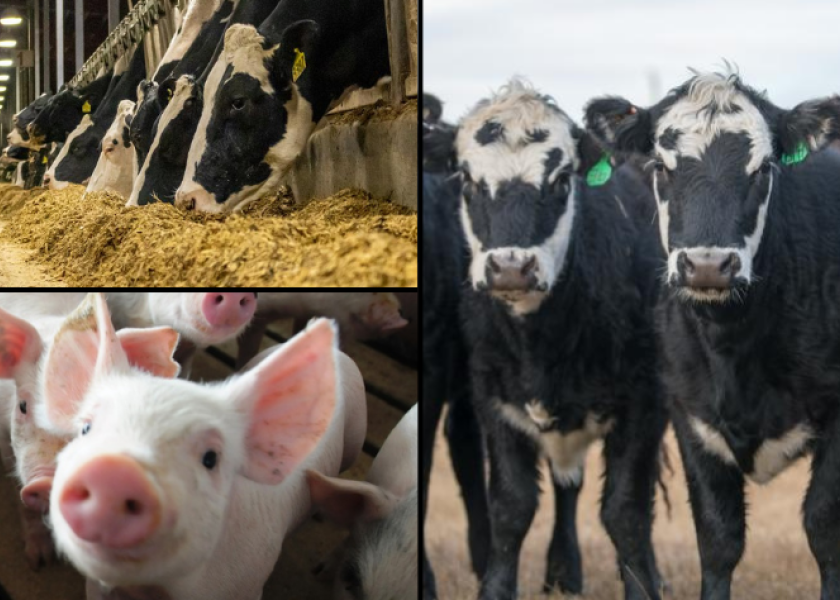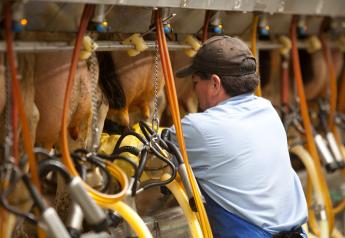Xylazine Bill Protects Veterinary Access to the Sedative

Xylazine is an important animal sedative that's used in almost every sector of veterinary medicine, including in beef and dairy production. However, illicit or illegal xylazine is increasingly showing up in street drugs.
Legislation proposed earlier this year and supported by the American Veterinary Medical Association (AVMA) and American Association of Bovine Practitioners (AABP) would help combat the emerging threat posed by illicit xylazine while protecting veterinarians’ ability to legitimately use the product.
“This is something that is critical to bovine veterinarians and cattle producers, and we've spent a lot of effort this year addressing the issue,” says Dr. Fred Gingrich, executive director for AABP, during the recent annual conference.
“We did a survey of our members, with over 500 respondents, and the vast majority of them use xylazine on a monthly, daily or weekly basis, and we want to protect our access to it,” he added.
Hear Dr. Gingrich's perspective on the issue in this brief video:
Common Uses for Xylazine
The drug is commonly used in the livestock industry, including dairy and beef production. "Dairy veterinarians administer it to sedate calves for disbudding, or we'll use a small dose on a very fractious animal to keep their feet on the ground," Dr. Gingrich says. "Beef veterinarians use it for disbudding or dehorning, and C-sections are another very common use.
“We really don't have any alternatives in bovine practice," he adds. "From a One Health perspective, we want to make sure that the situation is resolved while maintaining access.”
Combating Illicit Use of Xylazine
Xylazine, also known as “tranq,” is being used as a low-cost drug cutting agent. The Drug Enforcement Agency (DEA) reported 23% of fentanyl powder contained it in 2022. In humans, the product can cause depressed breathing and heart rate, unconsciousness, necrosis, and even death. Naloxone does not reverse the effects of xylazine because it is not an opioid.
The Combating Illicit Xylazine Act (S. 993/H.R. 1839) – a bipartisan bill that the AVMA helped develop, introduce, and build bipartisan support for – was introduced to Congress in March. The Biden administration designated fentanyl combined with xylazine as an “emerging threat” to the U.S. in April.
The designation allows the federal government to put together resources to counteract the illegal supply of the drug combination found nationwide, according to a press release from the Biden administration.
It’s the first time the United States has declared a drug an emerging threat, a category enabled by a 2018 federal bill, said Rahul Gupta, M.D., director of the Office of National Drug Control Policy (ONDCP), in the release.
Illicit xylazine’s growing role in being sold illegally and overdose deaths nationwide prompted the White House to make this designation.
Schedule III Designation Would Help
If the proposed legislation becomes law, it will make the manufacturing, distribution, dispensing, or possession of illicit xylazine for trafficking subject to Schedule III penalties under the federal Controlled Substances Act, the AVMA reports.
Illicit use of xylazine includes any use, or intended use, in people and would address any diversion of xylazine from veterinary sources. At the same time, the legitimate uses mean xylazine would remain an FDA-regulated, prescription veterinary drug.
A call to action urging veterinary advocates to reach out to their members of Congress in support of the legislation was recently featured by the AVMA’s Congressional Advocacy Network.
Dr. Gingrich also urges bovine veterinarians and livestock producers to reach out to their representatives in the House and Senate and ask them to support the legislation.
Why We Need to Reinvent Veterinary Care Now
Mycoplasma bovis is Tricky to Treat and Challenging to Prevent
How to Prevent Mastitis in Beef Cows







